Welcome Back to Trail Talk
During these interview podcast posts, I share stories from other members of the outdoor community. Range from wild adventures, to survival skills, conservation, and current events.
Look for episodes in your mailbox Sunday mornings at 9 a.m., MST. The stories you’re used to seeing will still arrive at the usual time, Thursday mornings.
EP 08: Chris Tomer, Meteorologist
Most of the Colorado outdoor community has already heard of Chris; a trusted name not just in our state’s weather forecasting, but for those attempting some of the most extreme and technically challenging peaks on the planet.
“I always wanted to know why. What was the reason? What was the science? What was the Math?”
Chris has been fascinated by the “why” questions from a young age. Understanding the way mechanics that make up our weather systems was a passion that guided Chris through high school, college, and his further pursuits.
The desire to experience and explore the high peaks was also instilled from a young age, over the course of many Colorado ski trips.
Interview Notes
1:00 — Early interest in weather
4:00 — Getting comfortable with the peaks
5:00 — The importance of a specialized forecast
6:45 — Understanding risk management
8:45 — Knowing when to turn back
9:10 — The trips when you can’t turn back
10:20 — How you can learn to spot changing weather
11:15 — An honest assessment of your skills
13:45 — What did the weather do the night before?
15:00 — Building a rapport with climbing partners
18:00 — Reflection on “speed climbing” the fourteeners
20:15 — How to explore for yourself
21:45 — “Sleeping on the Summits,” project
23:30 — Colorado as an amusement park
25:20 — Preventing degradation and overuse
27:00 — Only two fourteeners were planned trails
30:00 — Shift from prep-heavy to casual hiking
32:00 — Offering specific forecasts for fourteeners
33:10 — Finding an outdoor mentor
“With Modern Conveniences, People Just Run out the Door.”
The outdoor community is in a bit of an odd spot right now: we’ve never had more resources at our fingertips to prep for trips. From guidebooks to complete video walk-throughs of the routes, there are great resources all around us.
While Chris argues it is possible to over prepare for a trip, putting in the due diligence and taking honest inventory of your abilities will probably make for a more fun, and less stressful outcome.
“Whatever the forecast is — and it’s fine, it gives you a great idea how to pack your bag — never, ever bet your life on it.”
Chris also points out there’s a big difference between knowing what the forecast is expected to do, and knowing how to spot changes in the weather. Throughout your hike it’s always a good idea to keep the conditions you’re seeing in context.
Don’t ignore ominous-looking storm clouds on an August afternoon because the weather is supposed to be clear.
As Chris also explains, more time and skill with weather and the mountains will allow you to get a better read on situations like this. But if you don’t have that knowledge, it’s best to play it safe.
“Leave Your Pride at the Car”
Part of playing it safe is having a team you can trust. That trust is rooted in your team dynamic, and communication. You need to feel comfortable vocalizing your concerns with your climbing partner, or partners. And you need to be able to respect the concerns that they raise.
If your partner, or teammate raises a fuss or complains about you wanting to turn back, Chris says you probably don’t want to go climbing with that person again — and I’d be inclined to agree.
Some Skills Can’t Be Learned from a Book
Despite that wealth of available information that we discussed earlier — in books, websites, and videos — some skills need to be learned in practice. This is done most safely and effectively under the watchful eye of a skilled teacher; an almost master-and-apprentice style relationship.
I credit much of my success so far in the outdoors to the willingness of others to offer mentorship and guidance. Near the end of the interview, Chris and I talk about some great ways you can find a mentor, and if you’re skilled, the benefits you bring to the community by mentoring someone.
Reaching out to Chris
Chris is also always there if you have any outdoor questions. There are a lot of ways you can follow his forecasts, and get in touch:
Thanks for reading all the way through! If you enjoyed this interview, the absolute best way you can help me out is by sharing this post with someone else who loves the outdoors.
Here’s a surprise picture of a falcon for scrolling all the way down.






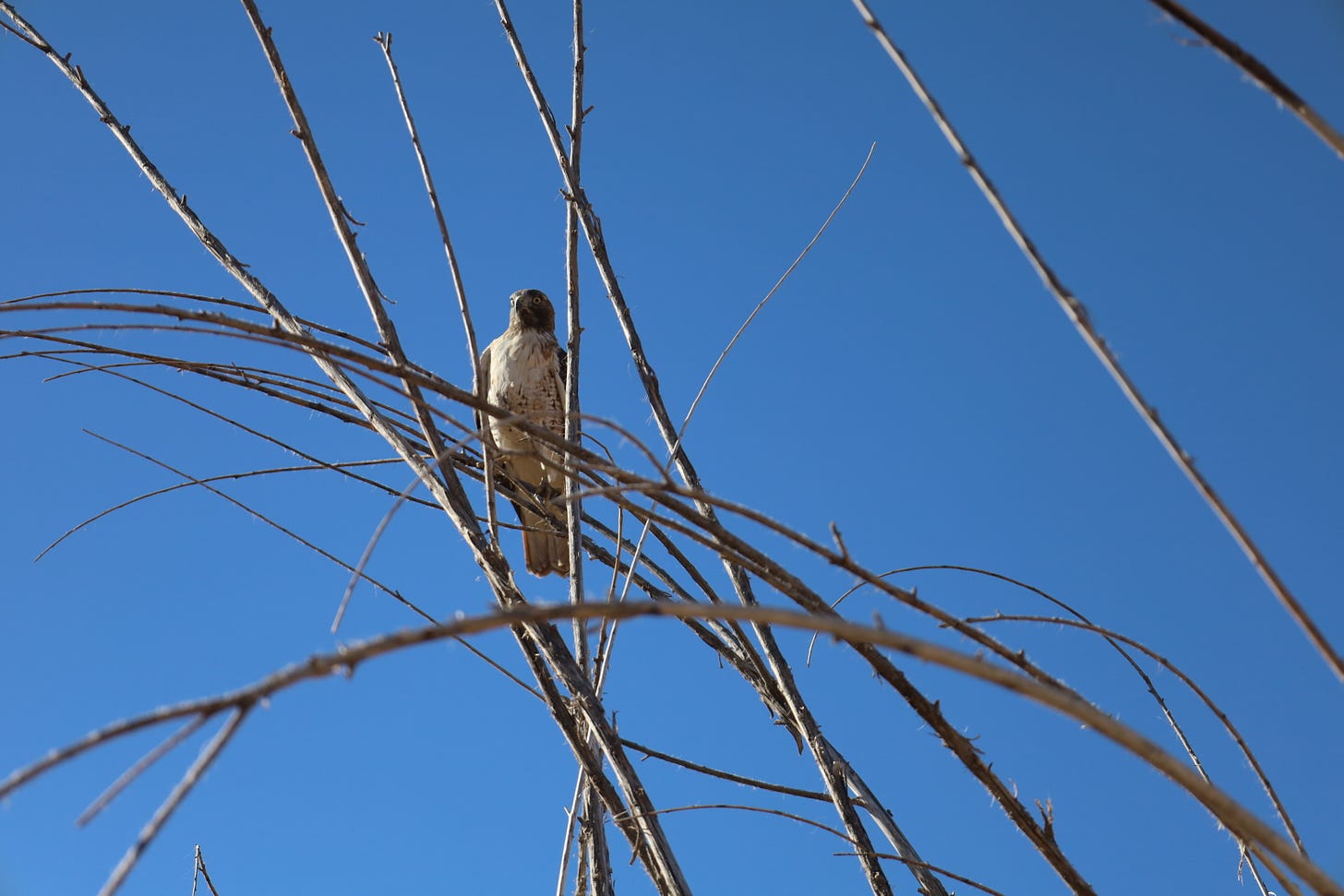



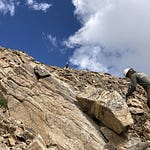
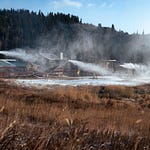

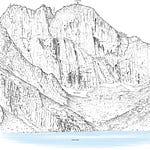


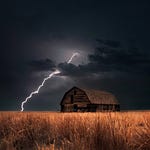
Meteorology and Mountaineering with Chris Tomer